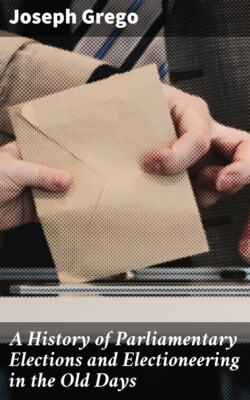Читать книгу A History of Parliamentary Elections and Electioneering in the Old Days - Joseph Grego - Страница 21
На сайте Литреса книга снята с продажи.
IN ANSWER TO A LITANY FROM ST. OMER.
Оглавление“From the force and the fire of th’ Insolent Rabble
That would hurl the Government into a Babel,
And from the nice fare of the Mouse-starver’s table,
Libera nos Domine.
“From a surfeit occasion’d by Protestant feasts
From Sedition for sauce, and Republicks for guests,
With Treason for Grace-cup, or Faction at least,
Libera nos.
“From the blind Zeal of all Democratical tools,
From Whigland, and all its Anarchical rules,
Devisèd by knaves and imposèd by fools.
Libera nos.
“From Parliamentarians, that out of their Love
And care for his Majesty’s safety, would prove
The securest way were his Guards to remove.
Libera nos.
“From a Protestant Church where a Papist must reign,
From an Oxford Parliament call’d in vain,
Who because Fitz-Harris the plot would make plain,
Was dissolv’d in a fit and sent home again.
Libera nos.”
The newly elected parliament, the materials of which were equally unpalatable to the Court party, was summoned to meet in October, 1679, but, prorogued during the royal pleasure, it did not actually meet until October 21, 1680. The interval was marked by the presentation of loyal addresses and petitions for its reassembling. Further prorogued on the 10th of January, it was dissolved on the 18th, to be followed by the “Oxford Parliament” of eight days, which was dissolved on March 28, 1681. The nation saw itself on the verge of civil war, and, remembering what it had suffered—while opposing the encroachments of the Crown and autocratic exactions—from the opposite extremes of anarchy and fanaticism, the people were resigned to temporize, and thus Charles was allowed to rule without a parliament until his death.
The following satire is well-founded, and pertinent to the prevalent state of affairs:—
